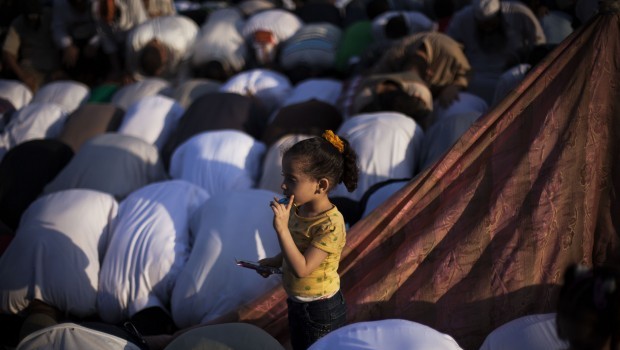Most political and strategic studies on the development of political organizations in the Islamic world reveal that such groups are based on a number of axioms, especially submission and obedience to the central leadership. The requirement of submission and obedience takes on more significant and serious dimensions within religious–political organizations, such as the Muslim Brotherhood and its offshoots that adopt its strategy despite differences in structure.
Perhaps the most significant principle of the Brotherhood and the similar-minded parties in the Arab and Islamic world is that new members are officially affiliated by taking an oath of devotion and obedience to the movement and its leadership, for better or for worse. In other words, members are sworn to obey even when the organization is going through crisis, whether that crisis is persecution, smear campaigns, waves of arrests, torture or interrogation.
Over the past decades, most Muslim Brotherhood branches in the Arab world have been operating undercover in order not to be discovered by the authoritarian regimes in the countries in which they operate. In light of this, Brotherhood leaders doubled their efforts to instill a sense of obedience in their supporters. All branches of the Muslim Brotherhood—whether that is the main organization, Al-Gama’a Al-Islamiyya in Egypt, Hamas in Palestine, and the Movement of Society for Peace in Algeria—follow a similar procedure. The leaders, whose titles vary between “amir,” “supreme guide” and “chief,” are often appointed for an unspecified term or re-elected almost automatically in an attempt to consolidate members’ loyalty to rulers through thick and thin.
In many cases, the head of the group is appointed for life, with his supporters expected to obey almost automatically. This is the case even in the groups that claim they seek to achieve peaceful transition of power in their country and that emphasize the necessity of electing the executive, legislative and even the judicial institutions administering public affairs.
Based on the experiences and political tests of the Muslim Brotherhood and its offshoots in several Arab countries, we can see that this requirement of submission and obedience to leaders is the organization’s main strength—and its main weakness.
The absolute loyalty demanded of the groups’ members might bring to mind the mentality of many secular parties and their devotion to the opinions of the majority, but it’s not the same thing at all. In religious–political organizations like the Muslim Brotherhood, where leaders are venerated akin to saints, maintaining the hierarchy and obeying the leadership is considered a religious duty of the membership.
True, some parts of the Muslim Brotherhood took to holding elections at their meetings, as the Tunisian organization did during the 1970s and 1980s. Still, the closest these groups came to internal democracy was the leader consulting the membership, rather than feeling himself bound by their decision even if it was against his wishes.
This concept of absolute obedience has caused a series of rifts and desertions in the Islamists movements. It has also contributed to acts of rebellion within these organizations, by both individuals and groups, as evidenced by the long list of Islamist groups that have emerged in Egypt and the Maghreb since the 1970s. (Most of which are offshoots of the Brotherhood.)
The same splintering effect was repeated in Tunisia, Egypt, Jordan, Sudan and Algeria. Several Islamist parties and movements emerged from the Ennahda Movement in Tunisia, Hamas in Palestine, the Reform and Renaissance Movements in Algeria, the Justice and Development Party in Turkey, and Al-Adl wa Al-Ihsane in Morocco. Perhaps the rifts within these ideological groups can be best accounted for by the different religious authorities (marjaiya) of their members.
From their experience, these groups have seen a high proportion of their members— who start as ardent disciples of their sheikhs, whom they almost deify— mature as they become well-read in Islamic and intellectual issues. This, in turn, prompts them to rebel against the group. This maturity is especially evident when members delve deep into the sources of Islamic Shari’a law, which honor man and show that faith is merciful as well as serve human interests rather than undermine the role of intellect.
When the members of such groups find that the mistakes of their leaders have incurred political losses as well as arrests, trials and exile, they take to self-criticism by scrutinizing the leaders they were obligated to blindly obey. Once members realize how fatal the mistakes of their leaders and senior staff were, desertions emerge and rifts deepen. This explains the plethora of Islamist parties and movements of all sorts in the Arab region, particularly in post-2003 Iraq and the countries that witnessed the Arab Spring in 2011.
The counterpoint to this piece can be read here.

Very informative article on the working of the fanatic combines in the guise of religion. The MB combines is basically fascist in ideology and terrorist in functioning. It has no democratic structure. It is simply unqualified to participate in the political process and contest for elections in a democratic set up. Its main aim is to grab power through hook or crook and then suppress all others as it is happening in Clerical Iran. Its greed for political power is simply unlimited. The governments in moslem countries should immediately disband such organizations and disqualify its members to participate in he political process or contest elections. They should be declared as an eternal threat to the society as a whole.